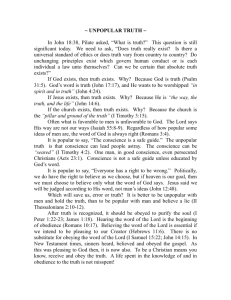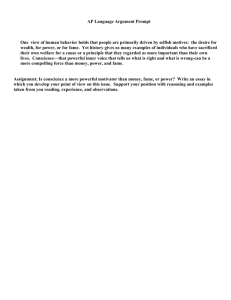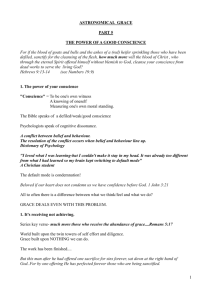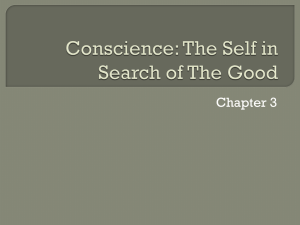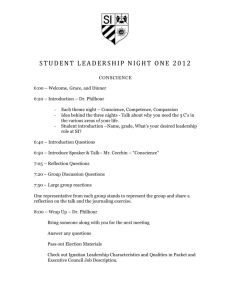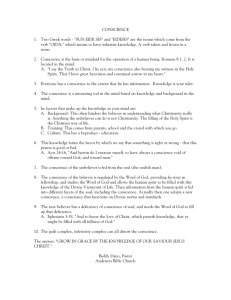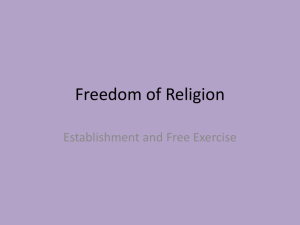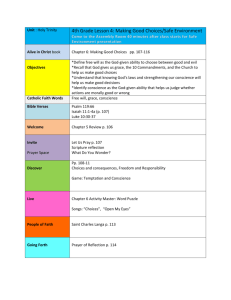Conscience
advertisement
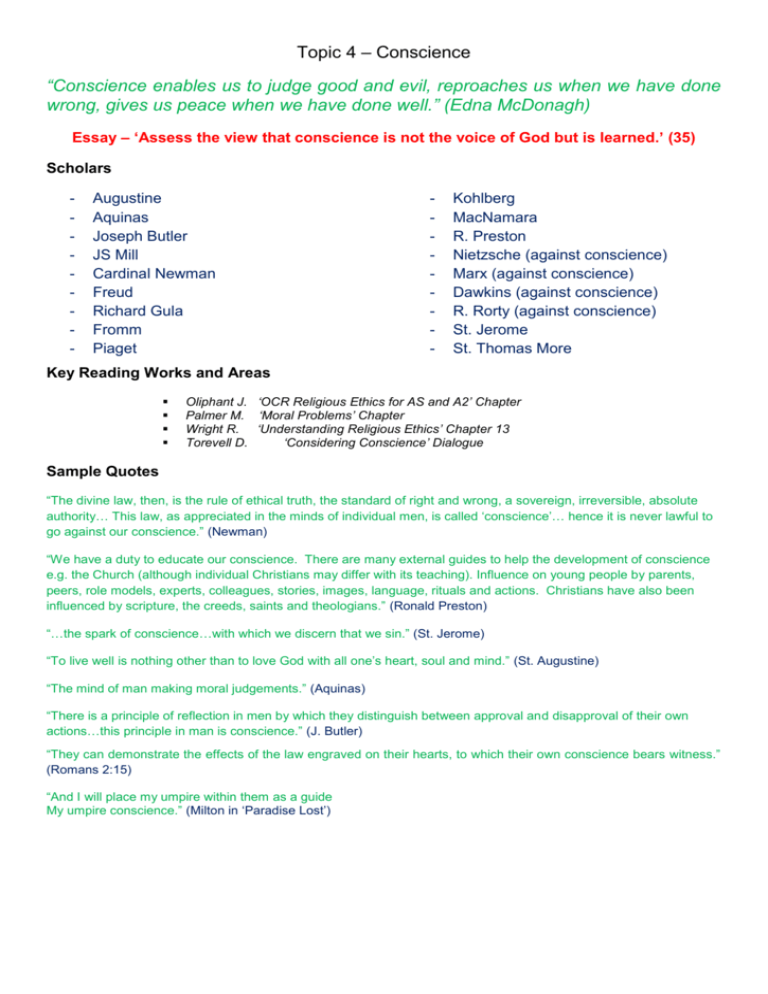
Topic 4 – Conscience “Conscience enables us to judge good and evil, reproaches us when we have done wrong, gives us peace when we have done well.” (Edna McDonagh) Essay – ‘Assess the view that conscience is not the voice of God but is learned.’ (35) Scholars - Augustine Aquinas Joseph Butler JS Mill Cardinal Newman Freud Richard Gula Fromm Piaget - Kohlberg MacNamara R. Preston Nietzsche (against conscience) Marx (against conscience) Dawkins (against conscience) R. Rorty (against conscience) St. Jerome St. Thomas More Key Reading Works and Areas Oliphant J. ‘OCR Religious Ethics for AS and A2’ Chapter Palmer M. ‘Moral Problems’ Chapter Wright R. ‘Understanding Religious Ethics’ Chapter 13 Torevell D. ‘Considering Conscience’ Dialogue Sample Quotes “The divine law, then, is the rule of ethical truth, the standard of right and wrong, a sovereign, irreversible, absolute authority… This law, as appreciated in the minds of individual men, is called ‘conscience’… hence it is never lawful to go against our conscience.” (Newman) “We have a duty to educate our conscience. There are many external guides to help the development of conscience e.g. the Church (although individual Christians may differ with its teaching). Influence on young people by parents, peers, role models, experts, colleagues, stories, images, language, rituals and actions. Christians have also been influenced by scripture, the creeds, saints and theologians.” (Ronald Preston) “…the spark of conscience…with which we discern that we sin.” (St. Jerome) “To live well is nothing other than to love God with all one’s heart, soul and mind.” (St. Augustine) “The mind of man making moral judgements.” (Aquinas) “There is a principle of reflection in men by which they distinguish between approval and disapproval of their own actions…this principle in man is conscience.” (J. Butler) “They can demonstrate the effects of the law engraved on their hearts, to which their own conscience bears witness.” (Romans 2:15) “And I will place my umpire within them as a guide My umpire conscience.” (Milton in ‘Paradise Lost’)

